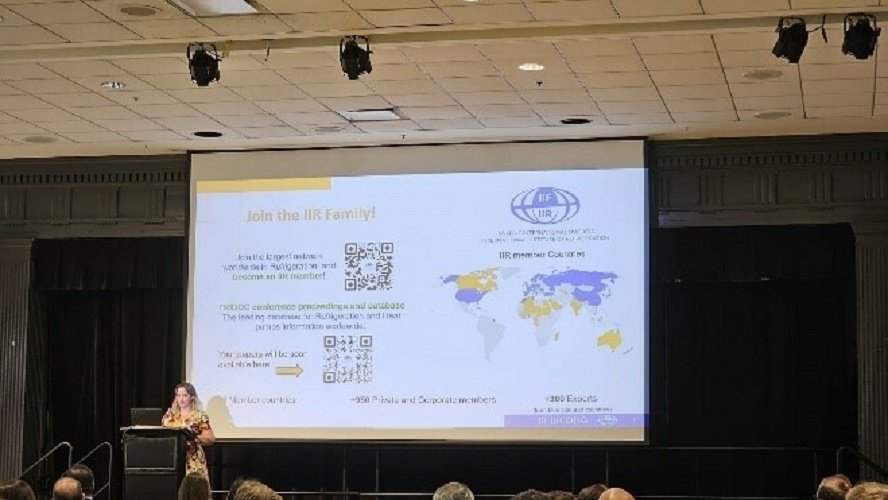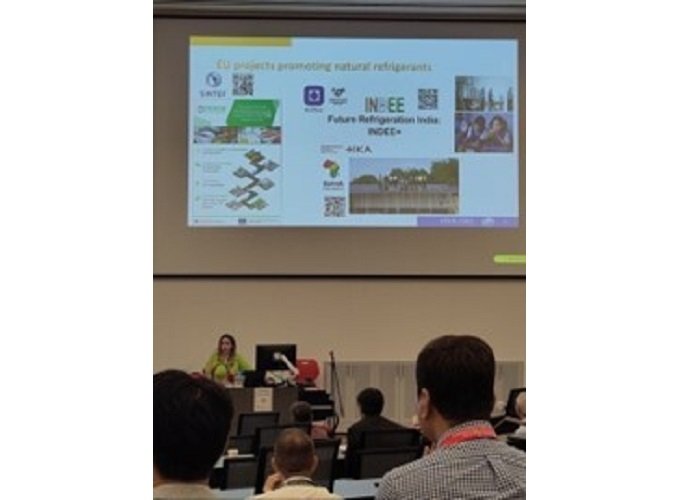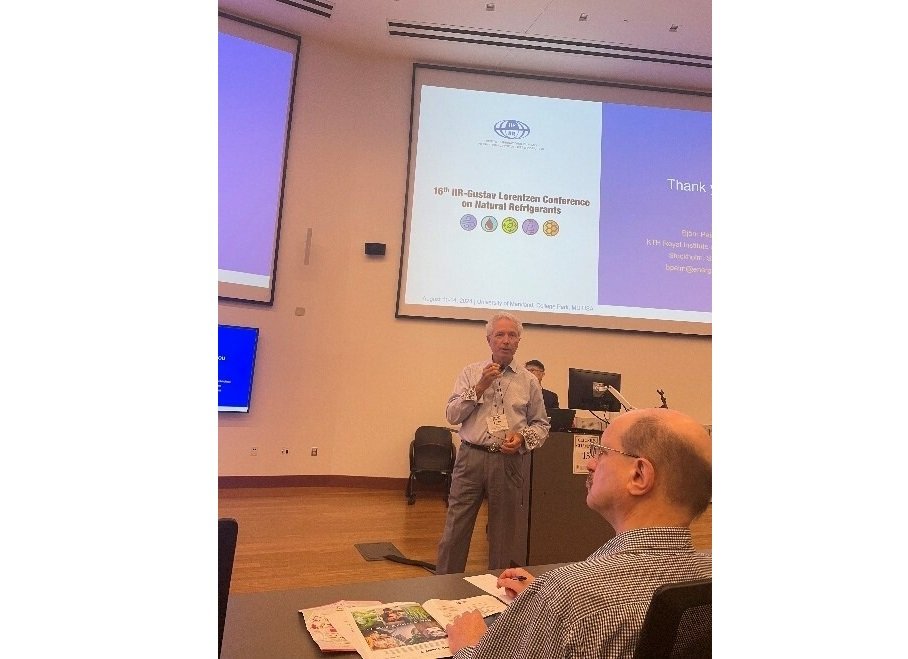Successful 16th IIR Conference on Natural Refrigerants Concludes at University of Maryland
The 16th Gustav Lorentzen Conference on Natural Refrigerants, hosted by the International Institute of Refrigeration (IIR), took place from August 12-14, 2024, at the University of Maryland, USA. The event was organized by the US delegation to the IIR, with Professors Yunho Hwang and Vikrant C. Aute leading the initiative. Attended by nearly 250 participants from 23 countries, the conference marked a major success in advancing discussions and research on natural refrigerants.
With 136 research papers presented, the conference highlighted the latest innovations and solutions in refrigeration and heat pump technologies, aimed at addressing the growing global demand for sustainable cooling systems. Participants engaged in dynamic discussions on cutting-edge technologies designed to meet the increasing refrigeration demands while promoting environmental sustainability.
A key feature of the conference was a series of workshops that showcased major projects such as ENOUGH, SophiA, and INDEE+, focusing on clean and energy-efficient refrigeration technologies. These sessions demonstrated how these innovations are being implemented in various sectors, including food preservation, healthcare, and human comfort, offering practical solutions for a more sustainable future.
The IIR expressed its gratitude to the local organizing committee, the University of Maryland, the scientific committee, reviewers, and sponsors, whose support made the event possible. Special thanks were extended to the distinguished plenary speakers: Professor Björn Palm (KTH Sweden), Eric M. Smith (IIAR), Hannes Fugmann (Fraunhofer Institute), and Zahid Ayub (Isotherm, Inc.), whose insights enriched the discussions.
IIR Director General also participated in the event, delivering remarks at the opening ceremony and contributing to a presentation during the ENOUGH workshop on the emissions database of EU food supply chains. Notably, the Director General co-authored a paper with colleagues from NTNU and CERN, presenting their research on applying Krypton as a refrigerant for cooling future particle detectors.
The IIR looks forward to continuing the progress made during this conference and invites everyone to the 17th Gustav Lorentzen Conference, scheduled to take place in New Zealand in 2026.
Introduction of Krypton (R784) at GL 2024 Conference: A Breakthrough in Ultra-Low Temperature Refrigeration
At the 2024 Gustav Lorentzen Conference on Natural Refrigerants, a major advancement in refrigeration technology was unveiled. Luca Contiero, a PhD candidate representing CERN and NTNU, introduced the use of Krypton (R784) as a new natural refrigerant for ultra-low temperatures ranging from -90°C to -60°C. This development represents a significant step forward in both scientific and industrial refrigeration applications.
The research, focused on cooling challenges faced by the Large Hadron Collider (LHC) at CERN, addresses the need for stable, ultra-low temperatures in particle detectors like ATLAS and CMS. These detectors, which generate substantial heat during operation, require effective cooling systems to protect components from radiation damage. While CO2 is currently used for cooling to -40°C, increasing radiation levels in future detectors necessitate even lower temperatures, making Krypton a promising alternative.
Krypton, with a freezing point of -157.4°C, offers similar thermodynamic properties to CO2 at ultra-low temperatures, making it an ideal solution for next-generation cooling systems. The development of the Krypton-based refrigeration cycle is underway at NTNU, where a prototype system has already been constructed and is undergoing testing. The inclusion of an ejector in the cycle enhances cooling efficiency, ensuring precise temperature control and protecting delicate detector structures from thermal shock.
With further testing planned at CERN, the research has the potential to revolutionize ultra-low temperature cooling, with applications extending beyond scientific research to industrial refrigeration. This breakthrough positions Krypton as a key player in the future of sustainable cooling technologies.



